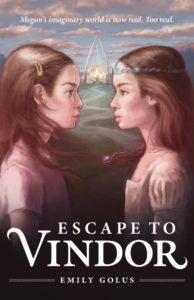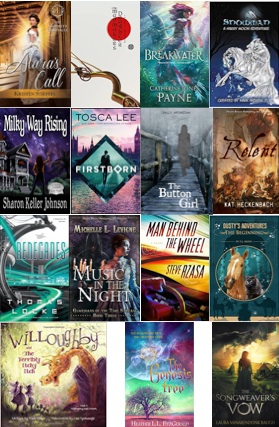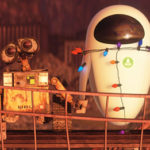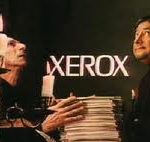The Myth That Will Not Die
To be honest, I have to admit that the myth of which I’m speaking once upon a time was more than a myth. In other words, there was truth involved in the claim. It was not a myth someone merely fabricated.
I’m having yet another discussion about Christian fiction, this one with someone in a speculative Facebook group. The original post was innocent enough—the group member asked what genre besides romance was most popular in Christian fiction. Not content to research the question or to give an opinion, one commenter took a direct shot at Christian fiction in general by responding that what was popular was “anything non realistic that old ladies like to read.” He shortly following that comment up with “Christian Fiction stinks like an old ladies Depends all around.”
I’m not sure what this guy’s issue with old ladies is, but what was worse than these comments, as far as I’m concerned, is that he later said he’d stopped reading Christian fiction.
My question is simple: if you don’t read Christian fiction, how do you know it stinks?
I feel like I’ve been an apologist for Christian fiction for lo these many years. Once it was in its infancy and it did need to improve. When the writing showed notable growth, the complaints still came: it was too unrealistic.
This Facebook commenter made that same accusation. The characters in Christian fiction “don’t sin” according to him. Which I think is laughable. I didn’t take the time to give him an exhaustive list of sins that protagonists in Christian fiction face, but I did use Patrick Carr’s A Cast of Stones as an example to refute that notion. After all, in that book the main character starts out as the town drunk.
Of course I’m not saying that every book which falls under the Christian fiction umbrella is realistic and well-written. Another commenter said that 90% of Christian fiction is poor, but 90% of general fiction is poor, too. That’s a valid point, I think. The proportion of good Christian fiction may not exceed that of general fiction, but neither is it non-existent.
I guess that’s why I think sites like Spec Faith and Lorehaven (especially the latter) are important. They serve as a filter so that readers can not only know what books are out there in the speculative genre, but what books actually are worth reading.
We need to know what people think. We need to know how to compare books with the greats and with the general market fare. We need to know the strengths and the weaknesses.
There are a couple ways we can evaluate books. One is to pay attention to what books are winning awards. There are a plethora of awards available to Christian fiction, some like the Realm Award, attached to a conference. The Oregon Christian Writers’ Conference awards both published and unpublished works in a number of categories. So does the Blue Ridge conference, the Florida conference, and of course the ACFW conference. Then there is the ECPA (publishers association) award known as the Christy Award.
 Books that win one of these awards have been vetted by judges who know something about writing. Some have gone through several levels of judging. Chances are, these books are a cut above the rest. As an example, I’ll mention the young adult novel that Spec Faith featured last Friday, Escape to Vindor by Emily Golus. What the introduction does not mention is that this novel won one of Blue Ridge awards called a Selah:
Books that win one of these awards have been vetted by judges who know something about writing. Some have gone through several levels of judging. Chances are, these books are a cut above the rest. As an example, I’ll mention the young adult novel that Spec Faith featured last Friday, Escape to Vindor by Emily Golus. What the introduction does not mention is that this novel won one of Blue Ridge awards called a Selah:
YA Fiction
Escape to Vindor by Emily Golus
Taberah Press
Mary Beth Dahl & Vie Herlocker, Editors
Another way to find the best books is by paying attention to reviews. Amazon is helpful, but this is where Lorehaven comes in as such a valuable tool. The site is still new and has only just put out the first copy of the review magazine, so there is lots of reason to expect growth. It will undoubtedly become a go-to place for those looking for the best speculative novels to read.
And good speculative novels, written from a Christian perspective, by Christians, or about Christians, are out there. Besides being an insult to old ladies, who by implication are accused of having no discernment, no ability to recognize good literature,the myth that Christian fiction is like a soiled diaper, that it is only for elderly ladies, is simply not true. It’s insulting to the hundreds of writers and editors who work hard to improve the quality of both indie and traditionally published novels. We simply cannot let that false notion persist. It needs to be refuted whenever it pops up.
Stand for truth! Stop the myth that Christian fiction is worthless if you want good novels.
As it turns out, I was not alone in my support of Christian fiction. A number of others added names they thought the commenter should read. What authors or titles would you put on that list?












































Anne Elisabeth Stengl! While Heartless does fall into some tropes, the rest of the Goldstone Wood series is amazing!
Best Christian fiction series ever, but sadly did not sell well. She indie published a couple, but last I heard decided to give it up to write mainstream fiction under another name.
And if anyone knows what name that is, I would love to find her again! She’s not revealing on her blog because of “darker” themes.
Yes, that’s a great add. She established her Roogle Publishing, or something like that. But she’s been busy being a mom, I think. I don’t know how her writing is doing. Her mom, Jill Stengel, writes too, or wrote first but has returned to writing. I read a historical of hers set in revolution France, and it was very good.
Becky
Here are a few authors/titles I recommend:
Nadine Brandes – “Out of Time” series. Dystopian future with a female protagonist like “Hunger Games”
Scott Appleton – “The Sword of the Dragon” series. High fantasy with dragons.
John W. Otte – “Failstate”. Urban superheroes.
Ethan Russell Erway – “Blowing Off Steam” series. Steampunk.
Kerry Nietz – “A Star Curiously Singing”. Futuristic cyberpunk.
Allan Rainey – “Flight of the Angels”. Far-future space opera.
Kirk Outerbridge – “Eternity Falls”. Hard-boiled detective blended with cyberpunk.